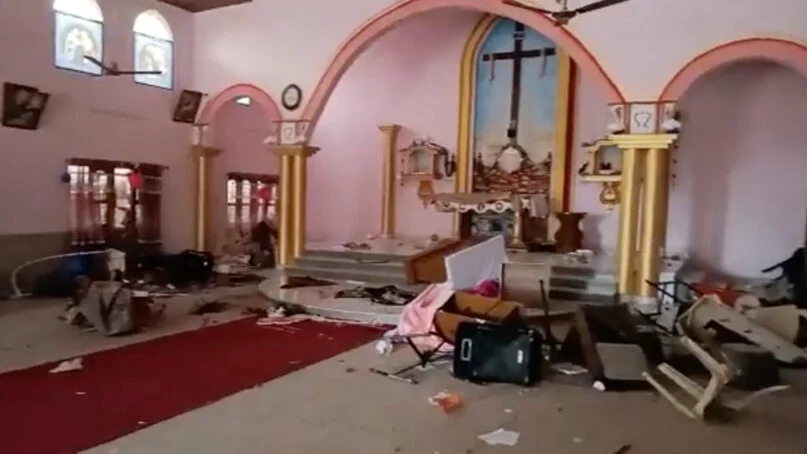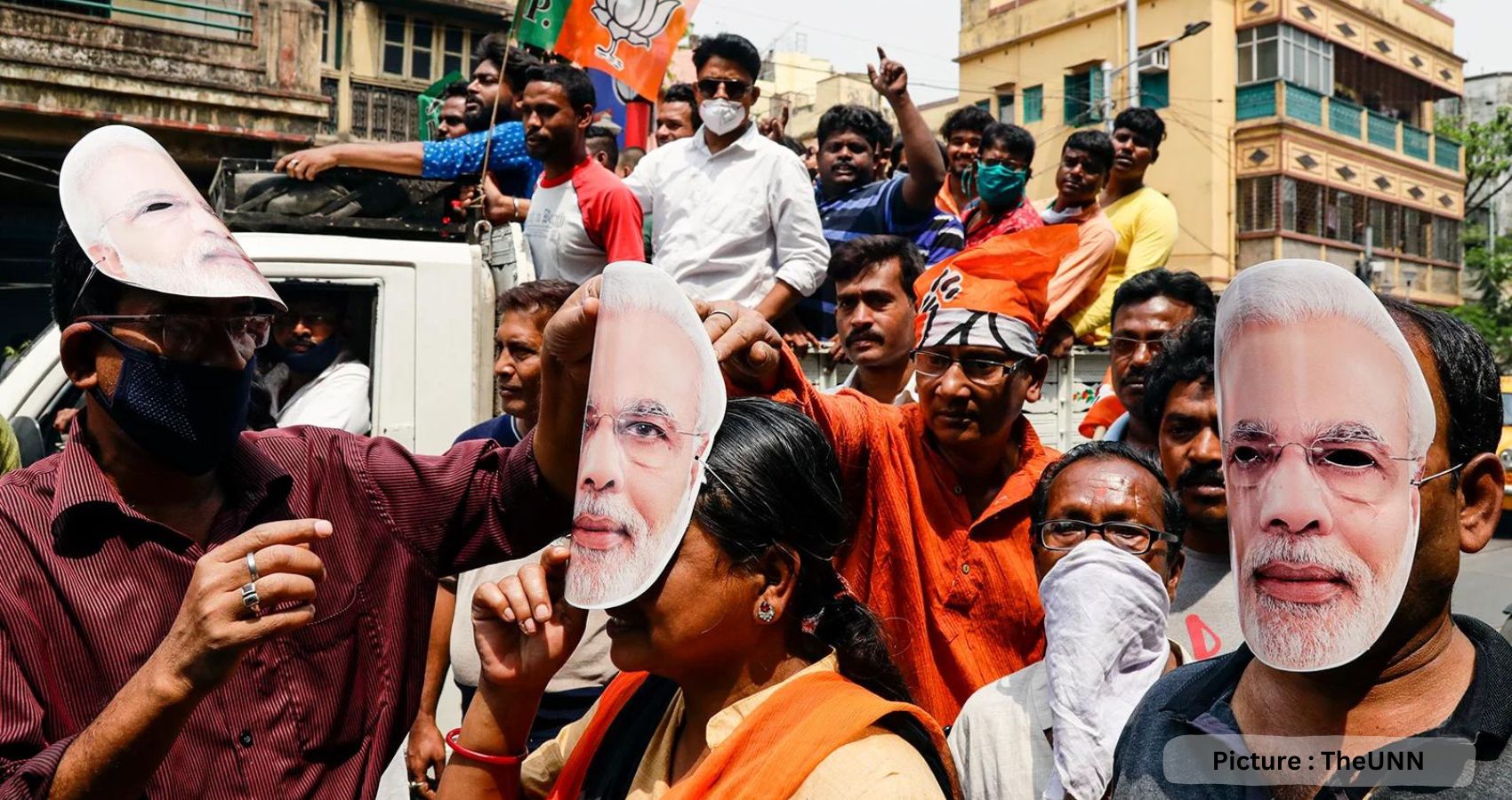(Global Christian Relief) — The world’s largest democracy should be protecting the religious rights of all of its people. On Jan. 2, a mob of about 1,000 extremists — men and women, young and old — armed with rocks, wooden sticks and iron rods viciously attacked Sacred Heart Church in central India’s Narayanpur district. While this kind of anti-Christian violence may be shocking, it’s not altogether surprising. Attacks against Christians in India have been steadily rising for years, jumping 81% from 2020 to 2021 alone.

The mob in this case was reportedly protesting “illegal” conversions and church construction, but this was no mere protest. Videos captured by one of Global Christian Relief’s partners show the crowd throwing rocks and bashing in windows of the church building and church vehicles. Police officers are seen standing by and even falling back as they allowed the frenzied mob to vandalize the church. Footage of the aftermath shows a destroyed Nativity, broken chairs and scattered debris.
Stories like these have become sadly routine since 2014, when Prime Minister Narendra Modi and his Bharatiya Janata Party rose to power. They have stoked attacks on Muslim and Christian minorities and spread their radical Hindutva ideology, claiming that being truly Indian means being Hindu. Reported incidents of violence against Christians have risen more than 220%.
The Modi regime has spent massive amounts of money to plant lobbyists in Washington to help hide the truth. As a result, you likely won’t hear this story inside the Beltway. American lawmakers are discouraged from confronting the truth because India is an important ally of the U.S. in South Asia. But Americans deserve to know it.
Publicly, the U.S. government has mysteriously remained silent about the events at Sacred Heart Church. Its lack of response to this horrific incident speaks volumes about our priorities. America currently does $102.3 billion in trade with India annually, and our economy would be negatively impacted if we fell out of India’s good graces. But will America be held hostage by economic power plays?
The Sacred Heart incident is only one sign of a larger problem. The Indian government has adopted anti-conversion laws and policies in more than 10 states, preventing people from choosing their own faith. These measures are leveraged by those in power to discriminate against religious minorities. This is not only in opposition to what we believe in America but is also in direct conflict with Article 25 of India’s own constitution: “ … all persons are equally entitled to freedom of conscience and the right freely to profess, practice and propagate religion.”
Media coverage of stories like Sacred Heart in India, which is scarce, also shows how Modi’s regime squashes stories of persecution. Only a handful of local outlets reported that five people were arrested that day. Since Modi’s rise to power, the Indian government has shut down news stations midbroadcast and has pressured advertisers as part of a wider assault on dissent. On Reporters Without Borders’ 2022 Press Freedom Index, India fell to 150th out of 180 countries—a journalistic crisis in “the world’s largest democracy.”
With Modi’s lobbyists deterring members of Congress from taking critical positions on India, using tactics such as intimidation and the spread of misinformation, the White House and State Department must hold the government of our largest trade partner accountable. We must demand that India uphold freedom of religion for all its citizens. It’s difficult to do business with people you can’t trust and don’t share common ideals with, especially if you don’t believe they provide basic human rights.
We have much common ground with India but cannot ignore its continued stunning slide into illiberal and radical religious intolerance. (David Curry is president and CEO of Global Christian Relief, America’s leading watchdog organization focused on the plight of persecuted Christians worldwide. In addition to equipping the Western church to advocate and pray for the persecuted, GCR works in the most restrictive countries to protect and encourage Christians threatened by faith-based discrimination and violence.
The above story was published in: Religion News Service.
(The views expressed in this sponsored commentary do not necessarily reflect those of www.theunn.com.)


